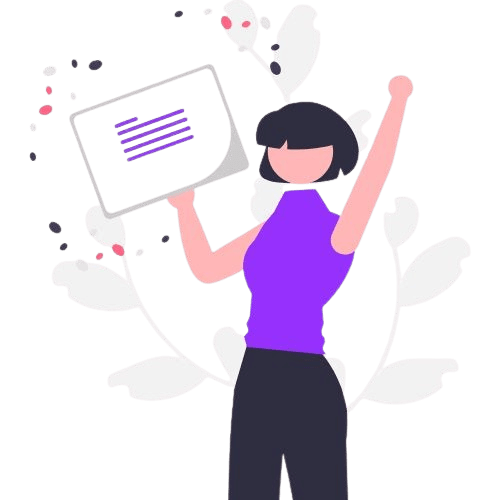Introduction
Remote work has revolutionized the modern workplace, offering flexibility and freedom like never before. However, with this newfound autonomy comes the challenge of staying focused in an environment filled with distractions.
Whether it’s household chores, family interruptions, or the temptation of endless scrolling, remote workers often find it difficult to maintain peak productivity.
The good news? By incorporating simple yet effective strategies into your routine, you can master the art of staying focused and making the most of your remote work experience.
This guide will walk you through 20 actionable hacks designed to enhance your focus, boost productivity, and bring balance to your work-from-home life.
Hacks to Stay Focused While Working Remotely

1. Create a Dedicated Workspace
- How It Helps: A designated workspace signals your brain that it’s time to work. It reduces distractions and enhances productivity.
- Implementation: Choose a quiet spot, away from the bed or TV. Use ergonomic furniture to ensure comfort and avoid physical strain. Add personal touches like plants, desk organizers, or inspirational quotes to create a positive and motivating environment.
2. Establish a Consistent Routine
- How It Helps: Routines help regulate your internal clock and create a sense of normalcy.
- Implementation: Start your day at the same time each morning. Include energizing activities like stretching, meditating, or drinking coffee. Stick to consistent working hours to separate professional and personal time.
3. Set Clear Goals for Each Day
- How It Helps: Having clear goals prevents procrastination and provides a roadmap for your day.
- Implementation: Write down 1-3 major tasks you want to accomplish each day. Use the SMART criteria (Specific, Measurable, Achievable, Relevant, Time-bound) to define these goals.
4. Use the Pomodoro Technique
- How It Helps: This time-management method enhances focus by balancing work and rest.
- Implementation: Work for 25 minutes without interruption, then take a 5-minute break. After four cycles, take a longer 15-30 minute break. Use a timer or apps like TomatoTimer for tracking.
5. Minimize Digital Distractions
- How It Helps: Blocking distractions improves focus and prevents unnecessary interruptions.
- Implementation: Use tools like StayFocusd, Freedom, or Cold Turkey to block distracting websites and apps during work hours. Turn off non-essential notifications on your phone.
6. Time Blocking
- How It Helps: Time blocking ensures each task has a dedicated time slot, avoiding multitasking.
- Implementation: Plan your day by assigning tasks to specific times. For example, allocate mornings for deep work and afternoons for meetings or lighter tasks.
7. Take Regular Breaks
- How It Helps: Short breaks refresh your mind, improving concentration and creativity.
- Implementation: Step away from your desk during breaks. Stretch, go for a short walk, or do quick breathing exercises to recharge.
8. Maintain a Clean Workspace
- How It Helps: A clutter-free environment reduces mental distractions and enhances focus.
- Implementation: Spend 5 minutes at the end of each workday organizing your desk. Keep only essential items within reach and avoid unnecessary clutter.
9. Prioritize Your Tasks
- How It Helps: Prioritization ensures you tackle the most important work first, reducing stress.
- Implementation: Use the Eisenhower Matrix to categorize tasks as urgent, important, or neither. Focus on high-priority tasks at the start of your workday.
10. Use Productivity Apps
- How It Helps: Apps provide structure and accountability for your tasks.
- Implementation: Tools like Trello, Asana, and Notion help you create task lists and track progress. Use Todoist to set reminders for deadlines and recurring tasks.
11. Set Boundaries with Family or Housemates
- How It Helps: Boundaries prevent interruptions during critical work hours.
- Implementation: Communicate your work schedule with family members or roommates. Use a “do not disturb” sign or noise-canceling headphones to signal focus time.
12. Stay Physically Active
- How It Helps: Physical activity boosts energy and reduces mental fatigue.
- Implementation: Incorporate exercise into your daily routine, such as morning yoga, a lunchtime walk, or evening stretches. Use fitness apps like 7-Minute Workout for quick routines.
13. Optimize Your Diet
- How It Helps: Healthy foods improve brain function and energy levels.
- Implementation: Include brain-boosting foods like almonds, blueberries, and whole grains. Avoid sugary snacks that lead to energy crashes. Stay hydrated by keeping a water bottle on your desk.
14. Leverage Accountability Partners
- How It Helps: Accountability motivates you to stay on track.
- Implementation: Partner with a colleague or friend to share daily goals and updates. Regular check-ins can provide encouragement and constructive feedback.
15. Practice Deep Work
- How It Helps: Deep work eliminates shallow tasks, allowing you to focus on complex projects.
- Implementation: Dedicate blocks of uninterrupted time to high-value tasks. Turn off notifications, close unnecessary tabs, and communicate your focus time with your team.
16. Stay Connected with Colleagues
- How It Helps: Regular interaction prevents isolation and fosters collaboration.
- Implementation: Schedule virtual coffee chats or team check-ins using Slack, Zoom, or Microsoft Teams. Maintain clear and concise communication to ensure productivity.
17. Monitor Your Progress
- How It Helps: Tracking progress keeps you accountable and motivated.
- Implementation: Use weekly reviews to evaluate completed tasks and areas for improvement. Celebrate small wins to maintain momentum.
18. Manage Remote Meetings Efficiently
- How It Helps: Well-organized meetings save time and prevent fatigue.
- Implementation: Always prepare an agenda and share it with attendees beforehand. Keep meetings concise and focused, limiting video calls to essential discussions.
19. Practice Mindfulness
- How It Helps: Mindfulness improves focus and reduces stress.
- Implementation: Spend 5-10 minutes daily practicing meditation or deep breathing. Apps like Calm or Headspace can guide you through quick mindfulness exercises.
20. Reward Yourself
- How It Helps: Rewards reinforce positive behaviors and keep motivation high.
- Implementation: Celebrate milestones with treats, a favorite activity, or a break. Even small rewards like a coffee or a quick social media scroll can boost morale.
Conclusion
Achieving focus while working remotely may seem daunting, but with the right approach, it’s entirely possible.
By implementing these 20 proven hacks, you can create a workspace that promotes efficiency, establish routines that support productivity, and embrace tools that keep distractions at bay.
Remember, remote work success isn’t about overloading your schedule it’s about working smarter, not harder. Start small by integrating a few of these tips into your daily routine, and watch as your focus, efficiency, and overall well-being improve.
Here’s to transforming your remote work journey into a fulfilling and productive experience!




